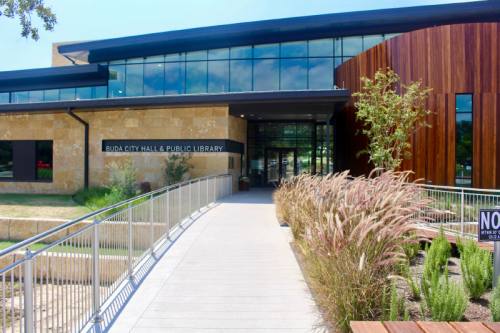The aquifer storage and recovery bill that will allow the city of Buda to pursue a more ambitious program than would have previously been permitted has been signed by the governor and is immediately effective as law, state Rep. Erin Zwiener, D-Driftwood, announced June 27.
Though the bill Zwiener filed in the house never went to a vote, companion legislation by state Sen. Donna Campbell, R-New Braunfels—known as Senate Bill 483—was sent to the governor’s desk May 22.
Aquifer storage and recovery, or ASR, is a water-management and drought-resiliency strategy that involves placing excess water supply in existing underground rock formations so that it can later be pulled out for use during times of high demand or lower supply.
For decades, groundwater regulations have not allowed water that does not come from the Edwards Aquifer to pass through it, even if it is in a sealed pipe. Buda’s full ASR program includes the step of using treated water the city has taken from surface sources—about half of its water of supply is from the Guadalupe-Blanco River Authority—and storing it underground.
Brian Smith, a hydrologist for the Barton Springs Edwards Aquifer Conservation District, previously told Community Impact Newspaper the BSEACD was supporting Buda’s bill because those rules were not meant to interfere with “things that are good for water supply.” Buda will begin drilling its pilot well in October or November, Buda Water Resources Coordinator Blake Neffendorf told City Council in May.



